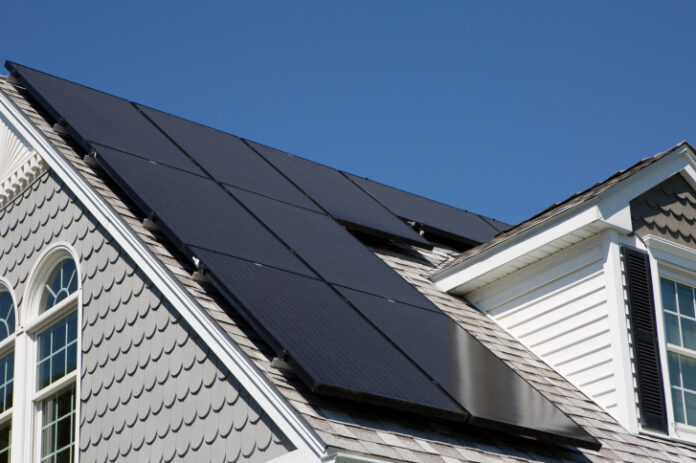The Heartland Institute assembled a coalition of 15 research institutes and think tanks representing ten different states and the District of Columbia to file a public comment with the Federal Energy Regulatory Commission (FERC) in support of a petition filed with the agency by the New England Ratepayers Association (NERA) to end the ability of states to pass the costs of rooftop solar panel installations on to ratepayers in general.
NERA’s petition asks FERC to “declare that there is exclusive federal jurisdiction over wholesale energy sales from generation sources located on the customer side of the retail meter.”
Potential Major Effect
If FERC grants NERA’s petition, it could have a major effect on “net metering” laws throughout the country, possibly leading to their demise, as NERA asks the agency to “find unlawful, and therefore reject, state net metering laws which assert jurisdiction over such wholesale sales.”
Net metering laws, adopted in 41 states, require utilities to purchase excess electricity from households with their own electricity generation source, the “customer side of the retail meter,” at the retail prices ratepayers pay for electricity. Usually these generation sources are rooftop solar panels.
Utilities typically buy electricity wholesale or generate it on their own, so the power they purchase from “distributed-generation” sources such as roof-top solar panels, as opposed to centralized large power plants providing power for many customers, costs them more, costs they pass on to other ratepayers in the form of higher prices.
In addition, managing power from rooftop solar sources and other distributed sources connected to the grid requires special equipment to regulate electricity flowing two ways. Under net metering laws, those costs are paid by ratepayers in general instead of the customers or companies that have installed or operate distributed generation sources.
Subsidizing the Wealthy
The cost-shifting resulting from net-metering laws is regressive, because rooftop-solar owners have generally higher incomes than others, so lower-income ratepayers end up subsidizing higher-income customers.
“Furthermore, by increasing the amount of intermittent, non-dispatchable power that utilities are required to purchase, higher risk premiums are incorporated into electricity rates—further increasing the cost of electricity to all non-net-metered consumers,” NERA’s petition says. “This cost shift is on the order of hundreds of millions of dollars across the country every year.”
‘Wealth Transfer Programs’
The Heartland Institute’s June 15 filing requests FERC “fully consider” NERA’s petition.
“NERA is correct on the legal merits of its position when it states FERC ‘has exclusive jurisdiction over the rates for wholesale sales and has an obligation to ensure that wholesale markets are non-discriminatory and produce just and reasonable results,’” the document states.
Heartland and the other organizations also ask FERC to remember the “economic pain these full net metering wealth-transfer programs are currently causing, and will continue to cause, if they are left unchecked.”
“The United States already has plenty of other welfare programs for the upper-middle class,” the coalition’s filing states. “At a time when the COVID-19 pandemic has, for all intents and purposes, effectively shut down the American economy and provoked both acute and widespread economic pain and uncertainty, asking lower-income consumers, many of whom are struggling to pay their bills, to subsidize their well-to-do neighbors is callous in the extreme.”
‘Undue Burden’ on Utilities, Consumers
FERC would be justified in regulating states’ net metering programs to insure electric power reliability and a fair sharing of costs among interstate power consumers, says Cameron Sholty, director of government relations for The Heartland Institute, which publishes Environment & Climate News.
“This letter on behalf of free-market organizations is long overdue,” said Sholty. “The disjointed way in which utilities in the states have regulated net metering and renewable and solar electricity production placed an undue burden both on energy providers and more importantly, consumers/ratepayers.
“FERC’s engagement on this issue is important to provide stability and fairness to the market.” Sholty said.
Other signatories to The Heartland Institute’s letter to FERC are the Caesar Rodney Institute (Delaware), the Committee for a Constructive Tomorrow ( District of Columbia), The James Madison Institute (Florida), the Center of the American Experiment (Minnesota), the Mississippi Center for Public Policy, the Nevada Policy Research Institute, the Rio Grande Foundation (New Mexico), the Roughrider Policy Center (North Dakota), the Center for Independent Thought (Pennsylvania), The Cornwall Alliance (Tennessee), and from Virginia, the CO2 Coalition, the Energy & Environment Legal Institute, the Leadership Institute, and the Science & Environment Policy Project.
Tim Benson (tbenson@heartland.org) is a policy analyst at The Heartland Institute.


























